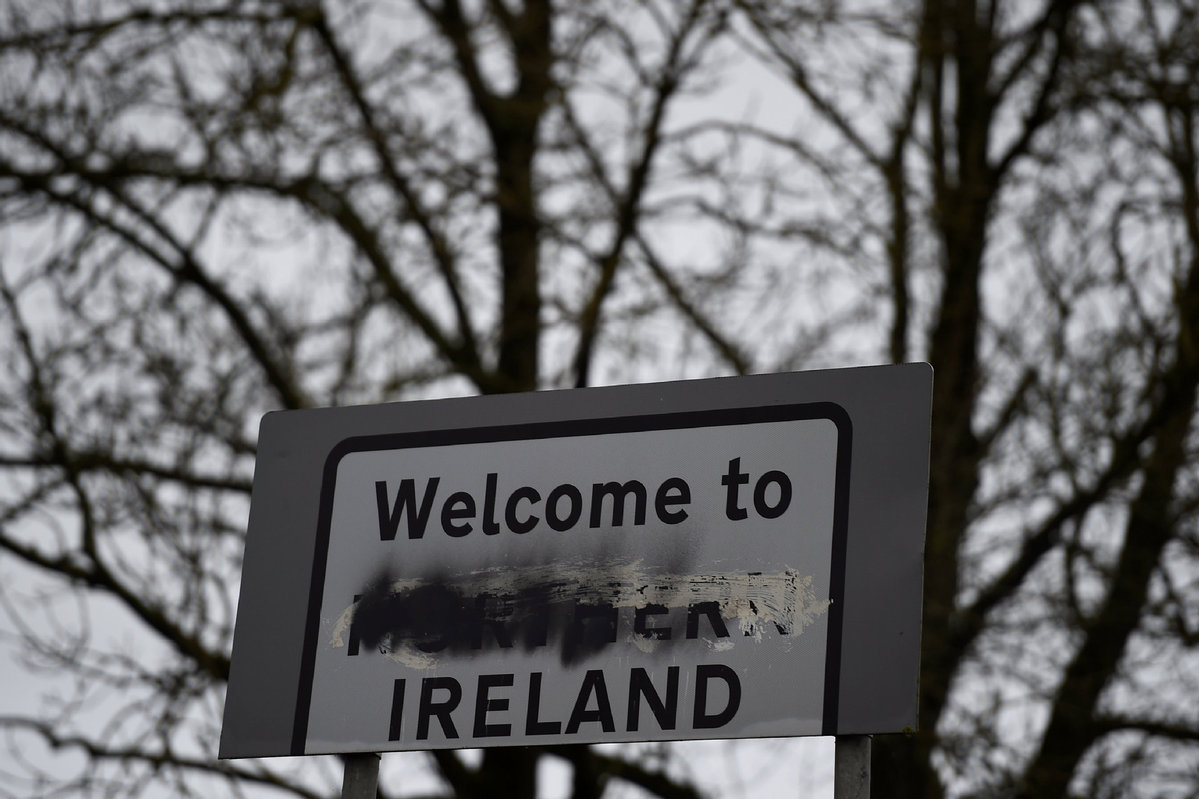Irish border remains biggest sticking point in Brexit talks


Although May told the British Parliament on Monday afternoon that "real progress" has been made on the "vast majority" of Brexit issues between the EU and UK, the so-called Irish backstop proves to be the toughest aspect of Britain's EU withdrawal deal.
The prime minister is fighting on multiple front amid signs that some of her cabinet could walk out this week over the Irish backstop.
London and Brussels both pledged that there will be no hard border on the island of Ireland, pending the agreement and ratification of a lasting "frictionless" UK-EU trade deal.
However, it is impossible to honor the bilateral guarantee as there is still a wide gap between the two sides on their post-Brexit relations.
At home, the government's latest Brexit compromise, known as the Chequers proposal, which was hammered out in early July, came under fierce attack by rebel Tory members of the cabinet and parliament.
Boris Johnson, former British foreign secretary, called upon the British public to "chunk Chequers." He, the current leading critical voice of the government Brexit policy, is said to campaign to replace May. David Davis, the former British Brexit secretary, was equally critical. He called for cabinet rebellion over the prime minister's Brexit plan.
At the same time, intensive talks are under way with the Democratic Unionist Party (DUP), which is based in Northern Ireland and currently props up May's ruling Conservative Party in the British Parliament, over the ties between Northern Ireland and mainland Britain after Brexit.
At the heart of the dispute is May's plan to break a deadlock in talks with the EU by permitting exports travelling between these areas to be checked. The DUP flatly rejected this idea.
The DUP's support is crucial to May's government because under the confidence and supply agreement, the Northern Ireland party provides voices to the Tories to give them an overall majority.
The party has vowed to oppose any new checks on goods passing between the Great Britain and Northern Ireland. And the DUP's Brexit spokesman has said the prospect of a no-deal Brexit is "probably inevitable."
The issue of the border between Northern Ireland and the Republic of Ireland, which will become the UK's border with the EU, is one of the last remaining obstacles to achieving a divorce deal with Brussels.
Wrangling is continuing over the nature of a "backstop" to keep the border open if a wider UK-EU trade arrangement cannot resolve it.
The EU's version, which would see just Northern Ireland remain aligned with Brussels' rules, has been called unacceptable by May and her Democratic Unionist allies.
The Republic of Ireland joined the EU in 1973 at the same time that Northern Ireland did as part of the United Kingdom. Goods, services, and people are able to travel freely between these two countries as they both follow the same restrictions of movement.
As a result of Brexit, Northern Ireland will also be leaving the EU with the rest of the UK. This means that for the first time, the UK will have a land border with the EU in the Republic of Ireland, where different restrictions on movement apply to each side.
A hard border between the Republic of Ireland and Northern Ireland could raise security concerns. The return of the physical border, involving lengthy customs checks and controls, could restore to life tensions between pro-Irish Catholic and pro-UK Protestant communities in Northern Ireland as they have not yet to bury their differences.
Irish Foreign Minister Simon Coveney suggested a deal would not be done at the upcoming summit. Coveney said he was "frustrated and disappointed" that it was going to take "more time than people had hoped."
"This is obviously a difficult period," British Foreign Secretary Jeremy Hunt said on Monday in Luxembourg ahead of talks with his EU counterparts. "There are one or two difficult outstanding issues but I think we can get there."
































